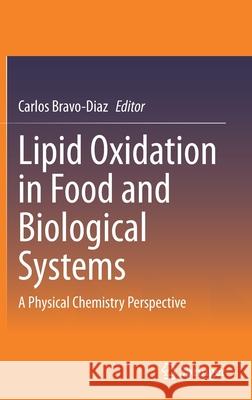Lipid Oxidation in Food and Biological Systems: A Physical Chemistry Perspective » książka
topmenu
Lipid Oxidation in Food and Biological Systems: A Physical Chemistry Perspective
ISBN-13: 9783030872212 / Angielski / Twarda / 2022 / 492 str.
Lipid Oxidation in Food and Biological Systems: A Physical Chemistry Perspective
ISBN-13: 9783030872212 / Angielski / Twarda / 2022 / 492 str.
cena 724,58
(netto: 690,08 VAT: 5%)
Najniższa cena z 30 dni: 693,97
(netto: 690,08 VAT: 5%)
Najniższa cena z 30 dni: 693,97
Termin realizacji zamówienia:
ok. 16-18 dni roboczych.
ok. 16-18 dni roboczych.
Darmowa dostawa!
This book offers a new physical chemistry perspective on the control of lipid oxidation reactions by antioxidants, and it further explores the application of several oxidation inhibition strategies on food and biological systems. Divided in 3 parts, the book reviews the latest methods to control lipid oxidation, it examines lipid oxidation and inhibition in different food systems, and it finishes with an overview of the biological, health and nutritional effects of lipid oxidation. Chapters from expert contributors cover topics such as the use of magnetic methods to monitor lipid and protein oxidation, the kinetics and mechanisms of lipid oxidation and antioxidant inhibition reactions, interfacial chemistry, oxidative stress and its impact in human health, nutritional, sensory and physiological aspects of lipid oxidation, and new applications of plant and marine antioxidants. While focused on lipid peroxidation in food and biological systems, the chemistry elucidated in this book is applicable also to toxicology, medicine, plant physiology and pathology, and cosmetic industry. The book will therefore appeal to researchers in the lipid oxidation field covering food, biological and medical areas.











